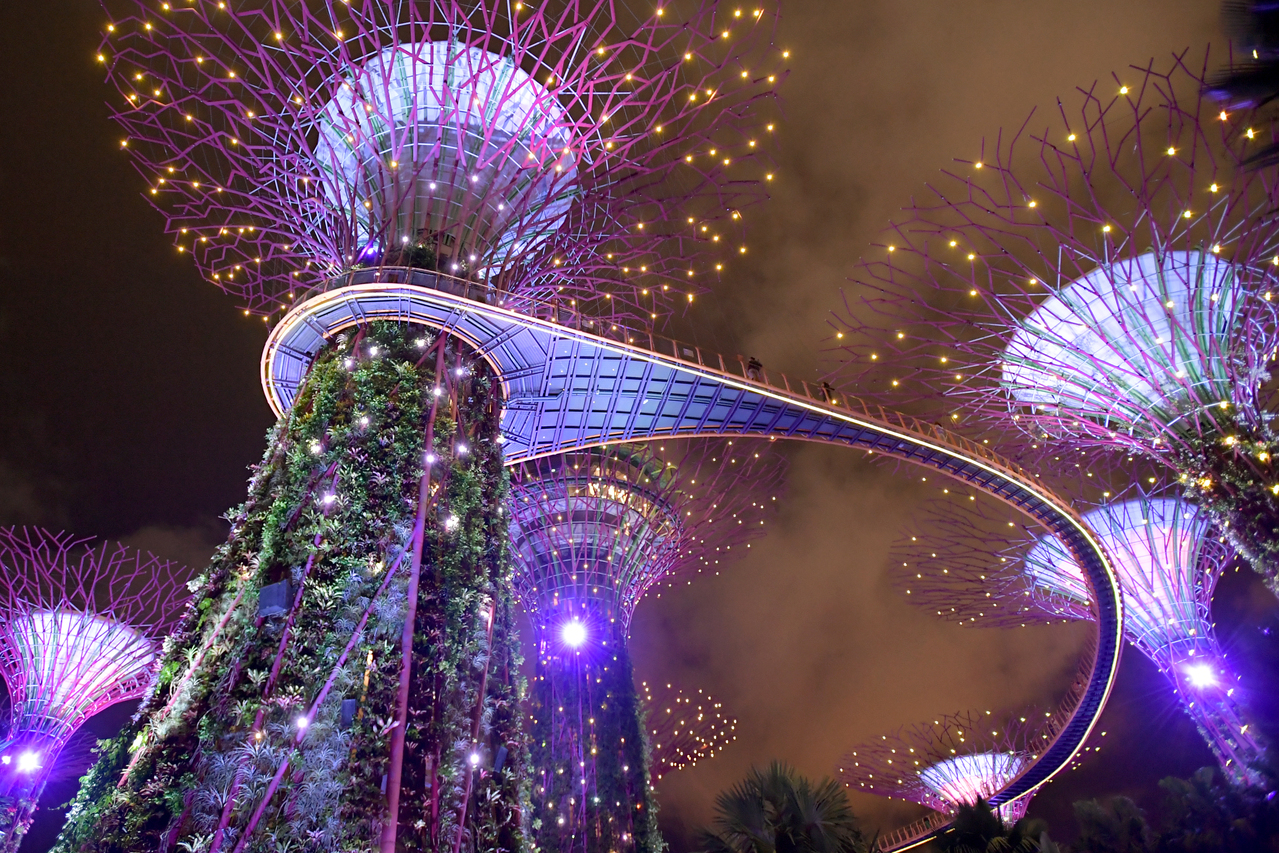Singapore visitor arrivals down more than 80% last year from 2020, in a historic low
Sign up now: Get ST's newsletters delivered to your inbox

Visitor arrivals increased by 221 per cent in the last three quarters of last year, compared with the same period in 2020.
ST PHOTO: LIM YAOHUI
Follow topic:
SINGAPORE - Singapore drew only about 330,000 international visitors last year, in a historic low for the country and a drop of more than 80 per cent from 2020.
Visitor spending tumbled by more than half to an estimated $1.9 billion, preliminary data from the Singapore Tourism Board (STB) showed on Tuesday (Jan 25).
In 2020, visitor arrivals to Singapore stood at 2.7 million, and tourism receipts came in at $4.8 billion.
STB said that while these numbers represent only a fraction of Singapore's tourism performance prior to the pandemic, there have been encouraging signs of recovery, with year-on-year growth in the last three quarters of 2021.
For example, the introduction of various arrangements, such as vaccinated travel lanes, has encouraged the gradual return of global visitors.
STB said the year-on-year decline in visitor arrivals and spending was largely due to the strong performance in the first two months of 2020. Nearly all of 2020's arrivals took place during that period.
Visitor arrivals increased by 221 per cent in the last three quarters of last year, compared with the same period in 2020.
Visitor spending, or tourism receipts, for the second and third quarters of last year was 92 per cent higher than in the same period in 2020.
China, India, and Indonesia were the top three visitor source markets last year. Singapore saw 88,000 visitors from China, 54,000 from India, and 33,000 from Indonesia.
Between January and September last year, tourism receipts reached $1.2 billion. Visitors from China contributed $432 million, Indonesia $127 million, and India $58 million. This excludes spending on sightseeing, entertainment and gaming.
STB chief executive Keith Tan said: “While it will take time for tourism numbers to return to pre-pandemic levels, we are encouraged by the resilience of our tourism businesses, and their commitment to preserve good jobs, transform their businesses, and invest in new products and experiences.”
Mr Tan, who was also speaking at a press conference on Tuesday, said it would be difficult to cast projections for tourism performance in 2022.
“We will not make any projections because we don’t have confidence in the ability to predict. The situation is still very uncertain. We should not expect tourism to recover in a predictable linear fashion. And we must be prepared for further surprises, good or bad.”
Singapore’s hotel industry registered an average occupancy rate (AOR) of 56.2 per cent last year. This is a slight decrease of 1.1 percentage points from the previous year, when AOR was reinforced by strong tourism performance in the first two months of 2020.
Average room rate increased slightly by 2.7 per cent to $158, while revenue per available room held steady at $89.
Despite the dip in tourism numbers, STB said it has not seen a major uptick in businesses that have shuttered.
It saw about 168 travel agents ceasing their licences over the last year or so.
Ms Jeannie Lim, STB’s assistant chief executive of the policy and planning group, said: “This is just slightly above the normal that we would see, where it is between 120 and 150 travel agents that usually cease their licences annually.”
About 13 hotels and hostels shut last year, with some in the economy and budget tiers.
But new hotels, such as Oasia Resort Sentosa, have come on board.
Singapore’s meetings, incentives, conventions and exhibitions (Mice) industry picked up pace last year. In 2021, more than 200 events were hosted, with almost 50,000 local and international attendees.
Singapore has a strong pipeline of Mice events from this year, such as the Singapore Airshow next month.
Mr Tan cited how several countries have announced the removal of quarantine and relaxation in testing measures.
BBC reported on Tuesday that people arriving in England and Scotland from abroad will no longer have to be tested for Covid-19 if they are fully vaccinated.
Mr Tan said: “Singapore can’t be too far behind as well. While we observe the pace of the pandemic here in Singapore, I think it is important for us to start pivoting back towards being welcoming to international travellers and opening up our borders even more. That must be our priority this year.”

